Researchers say the blast is the biggest since the universe began. It occurred at the center of a galaxy cluster some 390 million light years away from Earth.
Astronomers have discovered the biggest explosion seen since the begining of the universe, originating from a super-massive black hole.
The blast, they said, is the biggest explosion seen since the Big Bang — the cosmologial model to describe a rapid expansion of matter and energy that created the observable universe. The explosion reportedly released five times more energy than the previous record holder.
Read more: What's happening in the night sky in 2020?
The blast occurred at the center of the Ophiuchus cluster of galaxies, some 390 million light years away. The cluster is a conglomeration of thousands of galaxies, hot gas and dark matter bound together by gravity.
"We've seen outbursts in the centers of galaxies before but this one is really, really massive, " said Melanie Johnston-Holitt, a professor at the International Center for Radio Astronomy Research (ICRAR). "And we don't know why it's so big."
Read more: Mercury creates tiny solar eclipse in rare celestial act
Astronomers used NASA's Chandra X-Ray Observatory to make the discovery, as well as a European space observatory and ground telescopes. Scientists picked up the first sign of the explosion in 2016.
-
Out of this world: Scientists discover 300,000 new galaxies
Red flickers
This montage shows several galaxies from the HETDEX region. More than 200 scientists from 18 countries discovered hundreds of thousands of galaxies that no human has ever seen before. The astronomers created the new map of the northern sky with the radio telescope network LOFAR (Low Frequency Array).
-
Out of this world: Scientists discover 300,000 new galaxies
Fluorescent wings
The different colors in the radio source B3 0157+406 indicate the presence of large-scale turbulences in the source's magnetic field. Less scientific observers might see faces in the wing-shaped structures.
-
Out of this world: Scientists discover 300,000 new galaxies
Spiral galaxy
This brightly colored tail belongs to spiral galaxy M106. Researchers believe the flame-looking structures are the result of activity from the galaxy's central supermassive black hole. "With LOFAR, we want to find out which influence black holes have on the galaxies in which they are located," said Marcus Brüggen, an astrophysicist at the University of Hamburg.
-
Out of this world: Scientists discover 300,000 new galaxies
The 'Whirlpool Galaxy'
No, we did not make this nickname up! M51 is known as the "Whirlpool Galaxy" among LOFAR-astronomers, and it's not hard to see why. It's between 15 and 35 million light-years away from Earth and has a supermassive black hole at its center as well.
-
Out of this world: Scientists discover 300,000 new galaxies
The all-seeing red eye
This merging galaxy cluster goes by the snappy name of CIZA J2242.8+5301. Among astronomers it's known for its northern arch, dubbed the "Sausage." Researchers hope the new LOFAR data will also give them more information on how galaxy clusters evolve.
-
Out of this world: Scientists discover 300,000 new galaxies
Explosions in space
What you see here are supernova explosions in the spiral arms of galaxy IC 342. Pretty awesome, right? "This is a new window on the universe," said Cyril Tasse, an astronomer at the Paris Observatory who was involved in the LOFAR project, said about the newly discovered galaxies.
-
Out of this world: Scientists discover 300,000 new galaxies
Glimmering stars
Even LOFAR astronomers will use some trickery to arrive at the most beautiful picture sometimes. For this glittering snapshot, they super-imposed LOFAR images of a galaxy on an optical photo of the night sky. We'd say the effort paid off.
-
Out of this world: Scientists discover 300,000 new galaxies
'10 million DVDs'
The galaxy cluster Abell 1314 is located at a distance of approximately 460 million light-years away from Earth. LOFAR researchers will have mountains of data to look into from Abell 1314 and the roughly 300,000 other galaxies they have now discovered. "We have to work through the equivalent of 10 million DVDs," Dominik Schwarz from Bielefeld University in Germany said.
Author: Carla Bleiker
Chandra images of the cluster revealed an unusual curved edge, but scientists ruled out a possible eruption given the amount of energy that would have been needed to create such a large cavity of gas. The curviture was later confirmed to be a cavity.
According to ICRAR, the lead author of the study, Dr Simona Giacintucci from the Naval Research Laboratory in the United States, compared the blast to the 1980 eruption of Mount St. Helens, which tore the top off the mountain.
"The difference is that you can fit 15 Milky Way galaxies in a row into the crater this eruption punched into the cluster's hot gas," she said.
The blast is believed to be over by now, and, according to the research team, more observations are needed in other wavelengths to better understand what occurred.
Read more: Milky Way gobbled up smaller galaxy in cosmic crash, astronomers find
We made this discovery with Phase 1 of the MWA, when the telescope had 2048 antennas pointed towards the sky," said Johnston-Hollitt. "We're soon going to be gathering observations with 4096 antennas, which should be 10 times more sensitive. I think that's pretty exciting."
-
NASA's Mars 2020 rover: Scheduled to deploy in 1 year
Presentation in the clean room
The new NASA Mars rover has arrived. It will support the currently operating Curiosity rover in its work on the red planet. The new rover weighs just over 1 tonne (2,000 lbs) and is therefore 100 kg heavier than its predecessor. And, at 3 meters in size, it is also 10 centimeters longer. It can load more research equipment and sensors, and its gripper arm with cameras and tools is also stronger.
-
NASA's Mars 2020 rover: Scheduled to deploy in 1 year
Ready for takeoff to Cape Canaveral
This is what the rover looks like when it travels. On board a C-17 Globemaster, it traveled from California to Florida in the US. From there, it will set off to Mars on July 17. The new rover is able to collect samples from Mars. It is equipped with 23 cameras and many other instruments. Among other things, it aims to find out whether oxygen can be extracted from the Martian rocks.
-
NASA's Mars 2020 rover: Scheduled to deploy in 1 year
The robotic giant
Curiosity is the largest and most modern of all Mars rovers currently deployed. It landed on August 6, 2012 and has since traveled more than 21 kilometers. It is much more than just a rover. Its official name is "Mars Science Laboratory," and it really is a complete lab on wheels.
-
NASA's Mars 2020 rover: Scheduled to deploy in 1 year
What's in it?
For example, it contains special spectrometer, which can analyze chemical compounds from a distance with the help of a laser; a complete meteorological station that can measure temperature, atmospheric pressure, radiation, humidity and wind speed; and most importantly, a chemistry lab that can run detailed analyses of organic compounds and is always on the hunt for traces of alien life.
-
NASA's Mars 2020 rover: Scheduled to deploy in 1 year
Not just scratching the surface
Curiosity has shown that life would theoretically be possible on Mars. But it hasn't discovered any life, yet. The robot's arm is equipped with a full power drill. Here, it's taking a sample in "Yellowknife Bay" inside the Gale Crater.
-
NASA's Mars 2020 rover: Scheduled to deploy in 1 year
Off to the lab!
The Mars dust is processed by a large number of instruments. First, it's filtered and separated into different-sized particles. Then, those get sorted and sent off to different analytical laboratory machines.
-
NASA's Mars 2020 rover: Scheduled to deploy in 1 year
A tiny predecessor
Curiosity's predecessors were much smaller. On July 4, 1997, the small Mars rover Sojourner left its first tire tracks behind in the dust of the red planet. It was the first time a mobile robot had been left to its own devices there, equipped with an X-ray spectrometer to conduct chemical analyses and with optical cameras.
-
NASA's Mars 2020 rover: Scheduled to deploy in 1 year
Size comparison
Three rover generations. (The tiny one up front is Sojourner.) At 10.6 kilograms (23 pounds), it's not much bigger than a toy car. Its top speed: 1 centimeter per second. Opportunity weighs 185 kilograms — roughly the equivalent of an electric wheelchair. Curiosity is as big as a small car, at 900 kilograms. The big ones travel up to 4 or 5 centimeters per second.
-
NASA's Mars 2020 rover: Scheduled to deploy in 1 year
Almost four months of duty
Sojourner travelled about 100 meters during its lifetime and delivered data and pictures until September 27, 1997. This is one of the last pictures of it, taken nine days before the radio connection broke down. Sojourner probably died because the battery did not survive the cold nights.
-
NASA's Mars 2020 rover: Scheduled to deploy in 1 year
Paving the way for tomorrow's technology
Without the experience of Sojourner, newer rovers could have hardly been envisaged. In 2004, NASA landed two robots of the same model on Mars: Spirit and Opportunity. Spirit survived for six years, travelling a distance of 7.7 kilometers. The robot climbed mountains, took soil samples and withstood winter and sandstorms. Its sibling, Opportunity, lost contact on February 13, 2019.
-
NASA's Mars 2020 rover: Scheduled to deploy in 1 year
Lots of gadgets
Opportunity passed the marathon distance of 42 kilometers back in 2015, and to this day, it has covered much more ground than Curiosity. It can take ground probes with its arm. It has three different spectrometers and even a 3D camera. It was last operating in "Perseverance Valley," an appropriate workplace for the sturdy robot, before being incapacitated by a sand storm.
-
NASA's Mars 2020 rover: Scheduled to deploy in 1 year
The red planet's landscapes
This panorama was taken by Curiosity's mast camera. The most modern of the rovers will stay in service as long as possible — hopefully at least another five years and much longer. The Martian landscape looks familiar somehow, not unlike some deserts here on Earth. Should we give in to our wanderlust, then — or would it be better leave Mars to the robots?
Author: Fabian Schmidt
DW sends out a selection of the day's news and features. Sign up for it here.
lc/aw (AP, EFE)
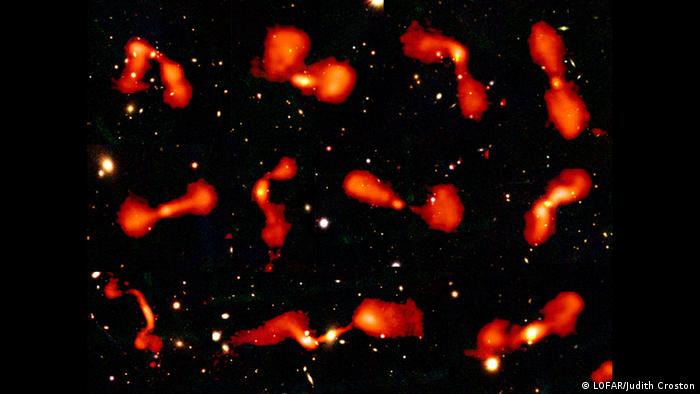
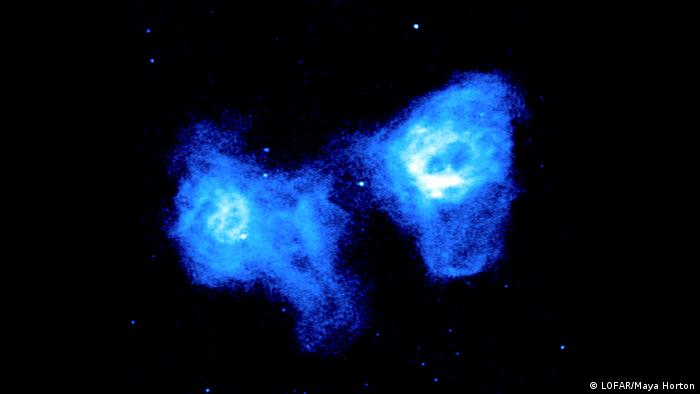
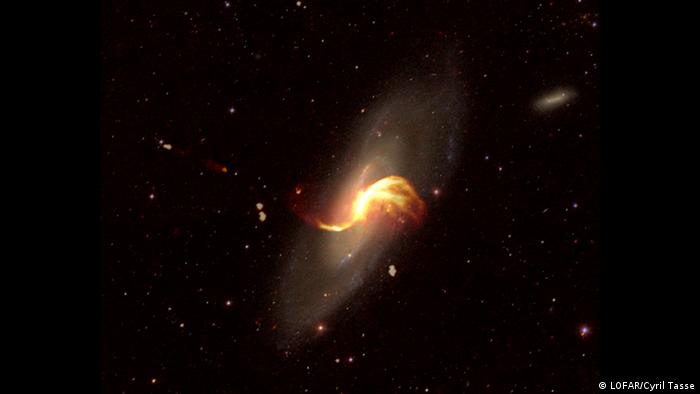
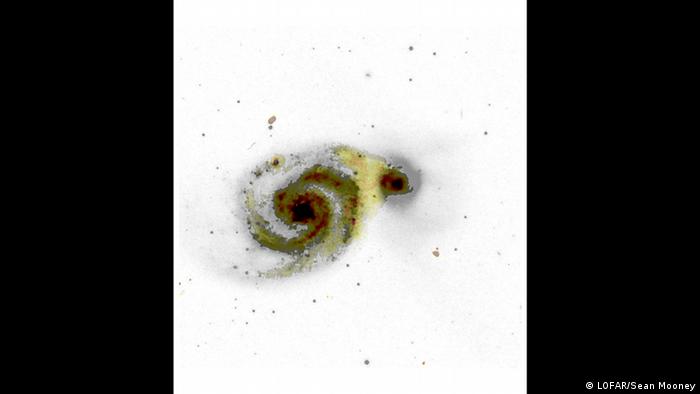
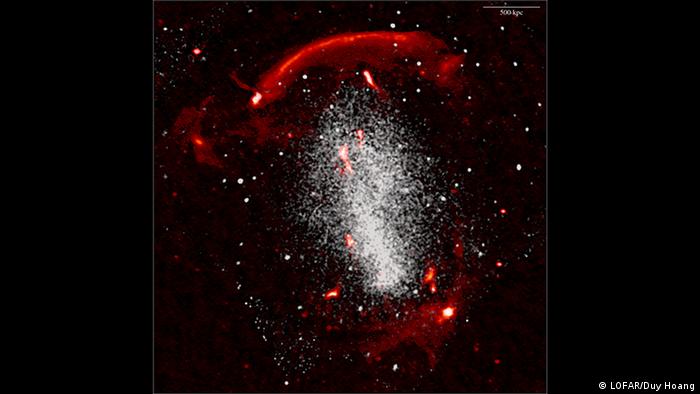
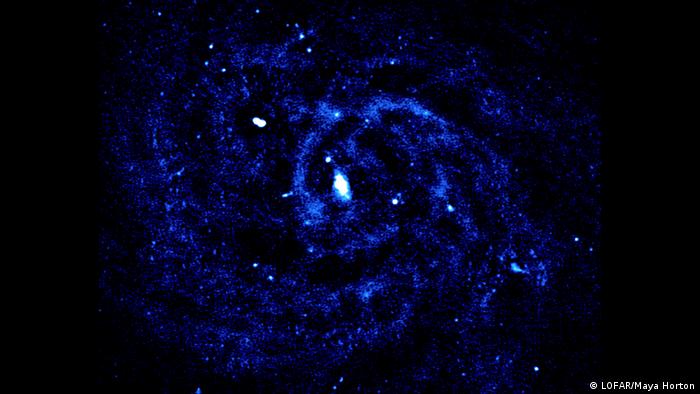
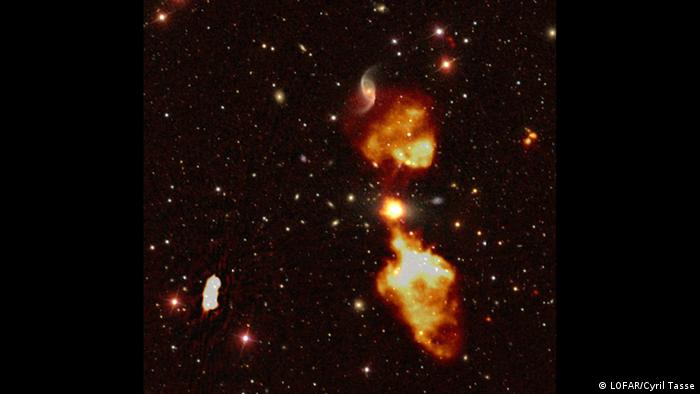
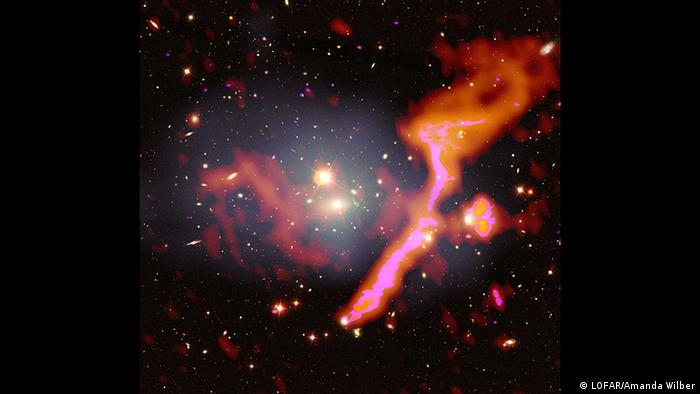
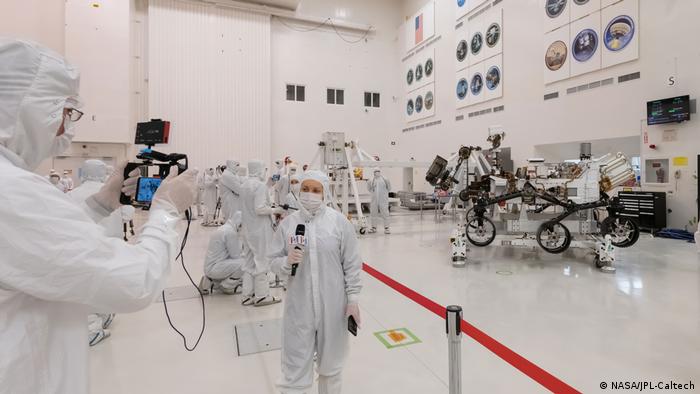
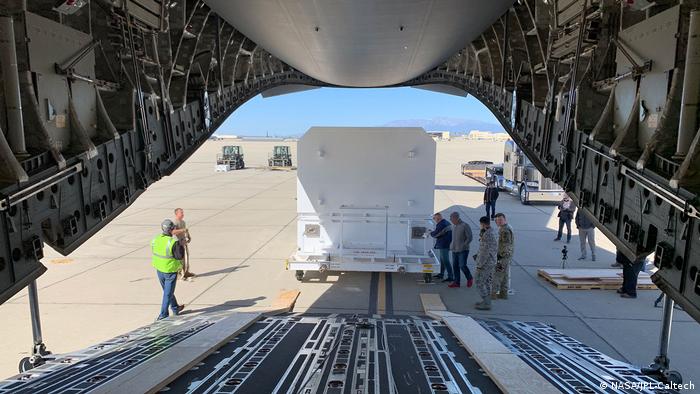
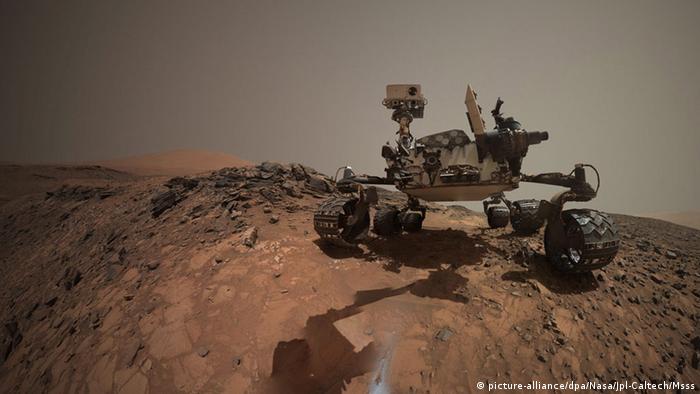
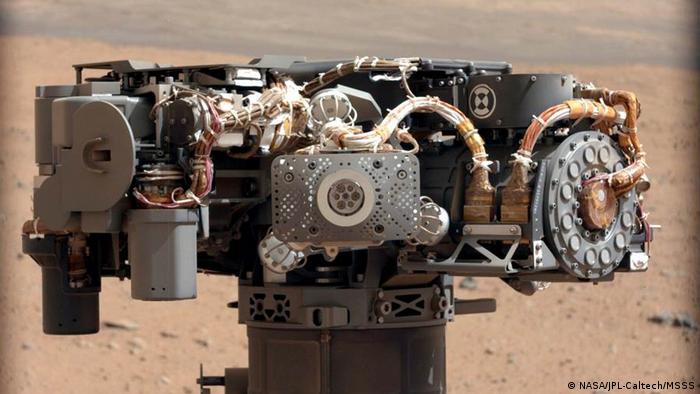
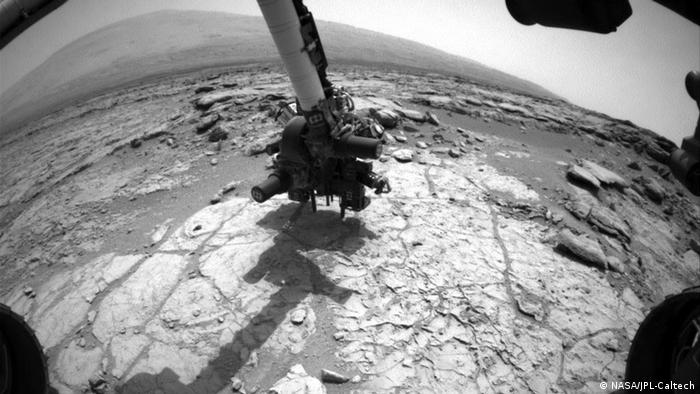
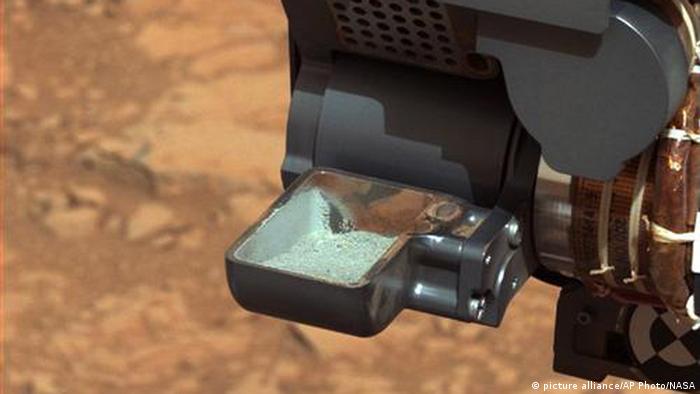
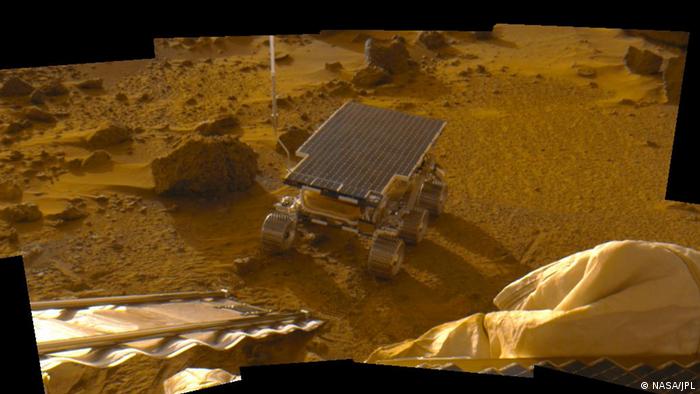
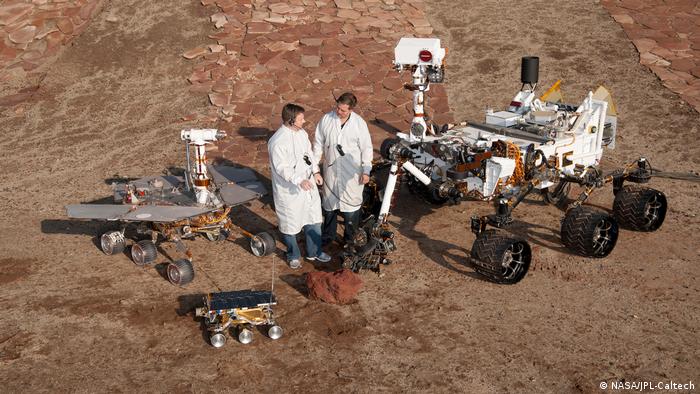
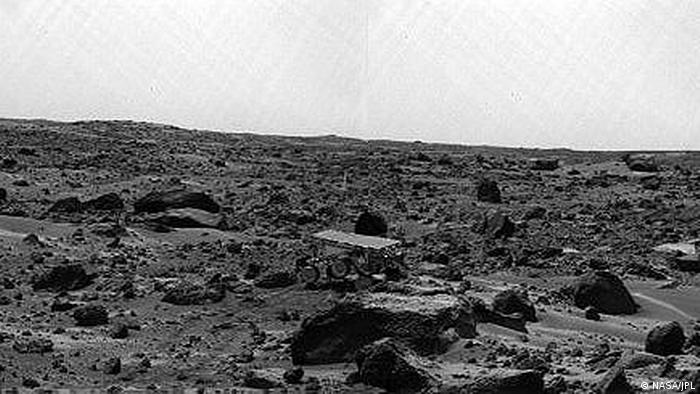
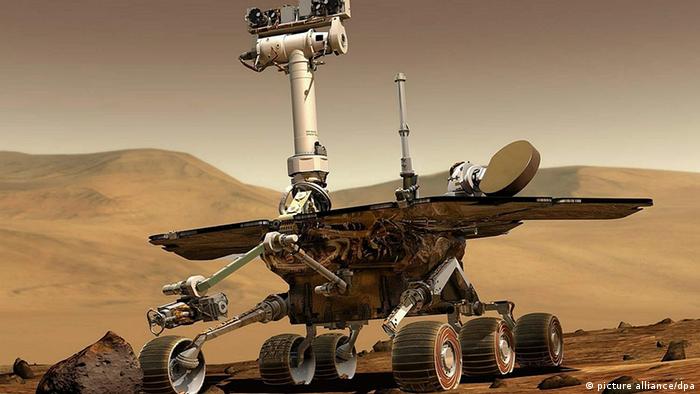
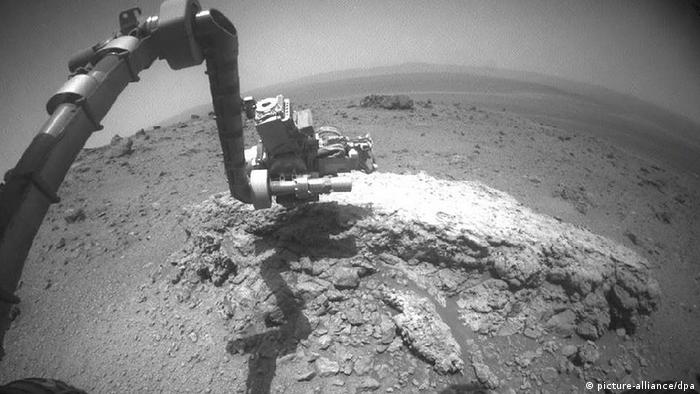
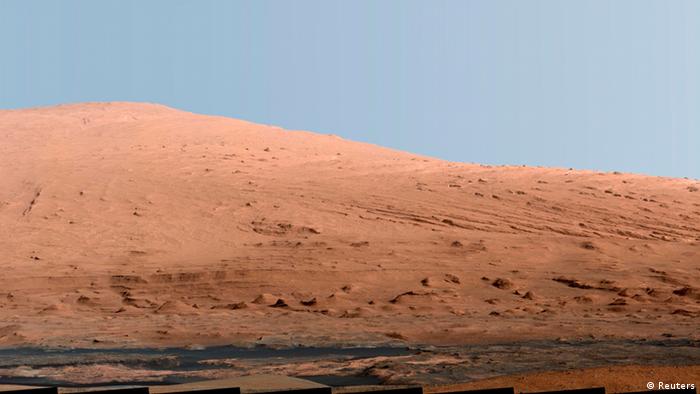














0 Response to "Astronomers detect biggest explosion since Big Bang - DW (English)"
Post a Comment